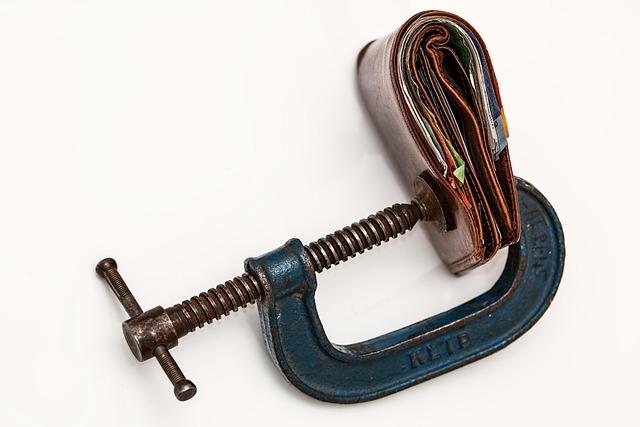A loan for debt consolidation offers a strategic solution for managing multiple high-interest debts by combining them into a single, lower-rate loan with simplified repayment. This is popular among those burdened by credit card or unsecured loans, aiming to reduce interest expenses and alleviate the stress of multiple payments. When choosing such a loan, understanding options (secured vs. unsecured) and evaluating your financial situation is crucial. Secured loans require collateral but offer lower rates, while unsecured loans provide flexibility but typically higher rates. Carefully research lenders, assess terms, and prepare necessary documents for a successful application.
Tired of high-interest debt? Discover how a Loan for Debt Consolidation can offer a lifeline. This comprehensive guide explores powerful strategies to manage and reduce your debt. From understanding debt consolidation loans to navigating various loan types, we break down the process step-by-step. Learn about the numerous benefits of consolidating debts, including lower interest rates, simplified payments, and improved financial health. Take control of your finances and start saving today!
- Understanding Debt Consolidation Loans: A Comprehensive Overview
- Benefits of Choosing a Loan for Debt Consolidation
- Types of Loans Available for Debt Consolidation
- Factors to Consider When Selecting the Right Debt Consolidation Loan
- Step-by-Step Guide to Securing a Debt Consolidation Loan
Understanding Debt Consolidation Loans: A Comprehensive Overview

Debt consolidation loans offer a strategic approach to managing multiple high-interest debts by combining them into a single, more manageable loan with potentially lower interest rates. This simplifies repayment, as borrowers only need to make one monthly payment instead of several. It’s a popular strategy for individuals burdened by credit card debt or other unsecured loans, aiming to reduce their overall interest expenses and alleviate the stress of multiple payments.
When considering a loan for debt consolidation, it’s crucial to understand the process and available options. These loans can be secured or unsecured, with secured loans often requiring collateral, typically a home equity loan or line of credit. Unsecured loans, while more flexible, usually carry higher interest rates. Lenders assess borrowers’ creditworthiness, income, and existing debt obligations to determine eligibility and offer competitive terms. Understanding these nuances is key to choosing the right consolidation loan that fits your financial situation.
Benefits of Choosing a Loan for Debt Consolidation

Choosing a loan for debt consolidation can be a strategic move toward financial freedom. One of the primary benefits is the simplification of multiple debts into a single, more manageable payment. This approach not only streamlines your financial obligations but also makes budgeting easier by consolidating high-interest rates onto one loan with potentially lower interest. By doing so, you could save money on interest payments over time and pay off your debt faster.
Additionally, a loan for debt consolidation can improve your credit score. Consistently making on-time payments demonstrates responsible borrowing to creditors, enhancing your creditworthiness. This improved credit profile can open doors to better financial opportunities in the future, including access to lower interest rates on future loans.
Types of Loans Available for Debt Consolidation

When considering a loan for debt consolidation, there are several types of loans available that can help streamline your financial obligations. The most common options include secured and unsecured personal loans, home equity loans, and credit card balance transfer offers. Secured loans, such as those backed by real estate or vehicles, typically offer lower interest rates but require additional collateral. Unsecured personal loans, on the other hand, don’t require collateral but often come with higher interest rates and stricter borrowing limits.
Home equity loans tap into the equity built up in your property, providing access to substantial funds. While this can be advantageous for those with significant home value, it’s important to consider the potential risks—including foreclosure if you fail to make payments. Credit card balance transfer offers often attract with low or no interest rates for a promotional period, making them appealing for debt consolidation. However, these deals usually come with fees and require careful management to avoid falling into debt again.
Factors to Consider When Selecting the Right Debt Consolidation Loan

When exploring a loan for debt consolidation, several factors come into play in helping you make an informed decision. Firstly, assess your financial situation by calculating your total debts and monthly obligations. This step is crucial as it determines the loan amount needed to effectively consolidate your debts. Understanding your current income and expenses will guide you in selecting a repayment plan that aligns with your budget.
Additionally, compare interest rates offered by various lenders. High-interest rates can significantly impact the overall cost of consolidation. Look for competitive rates and consider loans with fixed interest to avoid unexpected fluctuations. Repayment terms are another key aspect; choose a duration that allows manageable monthly payments without stretching your finances too thin. Reviewing lender credentials and checking for any hidden fees or charges ensures transparency and protects you from financial pitfalls.
Step-by-Step Guide to Securing a Debt Consolidation Loan

Securing a loan for debt consolidation can be a straightforward process if approached methodically. First, evaluate your financial situation by listing all debts and calculating total monthly obligations. This step is crucial to understanding the extent of your debt and determining the loan amount needed for effective consolidation.
Next, research and compare different lenders offering debt consolidation loans. Look beyond interest rates; consider loan terms, repayment options, and any associated fees. Once you’ve identified a suitable lender, prepare required documents like proof of income, employment details, and identity. Apply for the loan online or through the chosen lender’s branch, ensuring all information is accurate and complete. After approval, review the consolidation agreement, understand the terms, and make informed decisions to escape high-interest rates and gain better control over your finances.
When considering a loan for debt consolidation, it’s essential to understand your options and make an informed decision. By consolidating your debts, you can simplify your financial obligations and potentially reduce the interest you pay over time. This article has provided a comprehensive guide, from understanding debt consolidation loans to selecting the right type of loan and following a step-by-step process. Remember that each individual’s financial situation is unique, so it’s crucial to weigh the benefits and factors carefully before securing a loan for debt consolidation.







